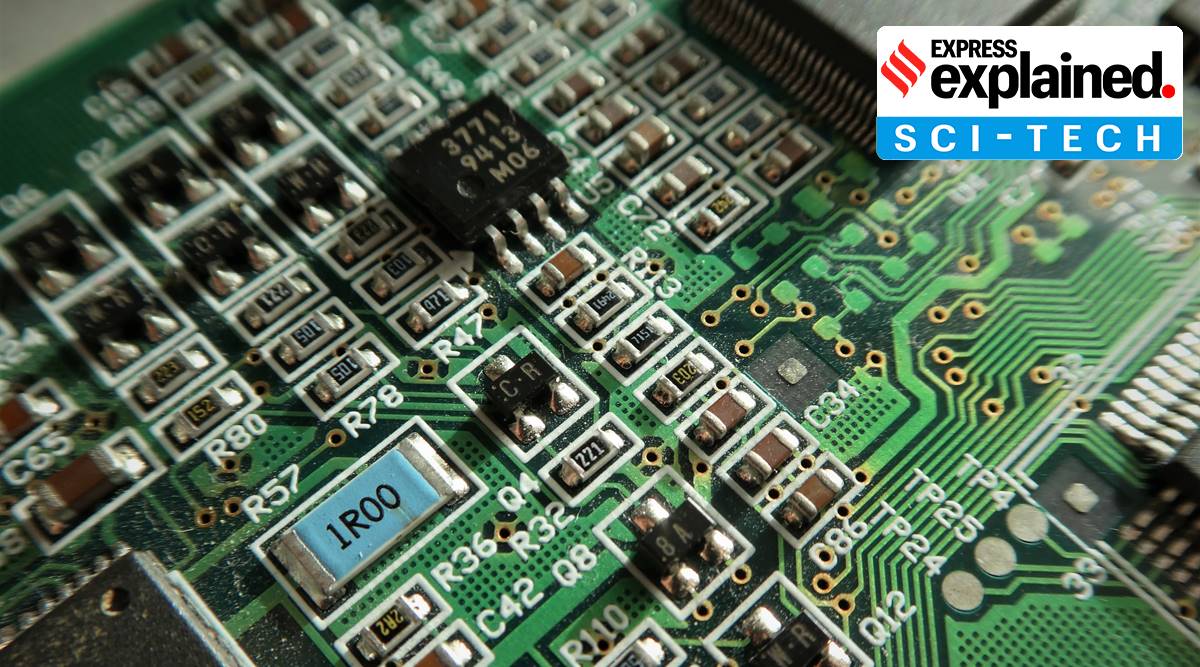
A protracted shortage of inputs, especially semiconductor chips, has made India-based car manufactures and premium bike makers curtail production across categories. While carmakers in India appear to be waiting to ride out the chip famine by constraining production, their global counterparts have got more creative in addressing the shortage.
Why did the chip famine occur?
The trigger point was the beginning of the Covid-19 pandemic and the subsequent lockdowns across the world that forced shut crucial chip-making facilities in countries including Japan, South Korea, China and the US. A key feature in a chip shortage is that it almost always causes cascading effects, given that the first one creates pent-up demand that becomes the cause for the follow-up famine.
What is the impact of the chip famine?
Consumers of semiconductor chips, which are mainly car manufacturers and consumer electronics manufactures, have not been receiving enough of this crucial input to continue production. Chip shortage is measured in chip lead time, which is the gap between when a chip is ordered and when it is delivered. According to a Bloomberg report, which quoted research by Susquehanna Financial Group, the chip lead time increased to 17 weeks in April, from around 12 weeks in the beginning of 2020. Also, with just-in-time deliveries, carmakers typically kept low inventory holdings and relied on an electronics industry supply chain to feed production lines as per demand. There were two reasons for this: a steady decline in input prices and improvements in the processing power of chips.
The number of transistors mounted in IC circuit chips has doubled every two years. Notably, the increase in chip consumption over the last decade is also partly attributable to the rising contribution of electronic components in a car’s bill of materials. Electronic parts and components today account for 40% of the cost of a new internal combustion engine car, up from less than 20% two decades ago. Chips account for a bulk of this increase.
How have Indian vehicle makers responded?
Mahindra & Mahindra has said it is factoring in some delays in the launch of its flagship Mahindra XUV500 and its new Scorpio, with the company flagging concerns over seamless availability of raw materials, especially semiconductors. “Anything around semiconductors is the primary supply chain constraint at the moment,” Rajesh Jejurikar, Executive Director, Auto & Farm Sectors, M&M said during a virtual media meet earlier this year. Supply constraints are learnt to have caused some output issues at Tata Motors Commercial Vehicles. At Bajaj Auto, production of premium motorcycles has been hit, with senior executives pointing to production losses in its KTM range of bikes because of shortage of semiconductors and ABS parts from Bosch. Ford Motor, the American carmaker, in a statement earlier this year, said that both of its plants in Chennai and Gujarat are facing supply issues, and they expect shortage to continue through at least the first half of 2021.
What are global carmakers doing?
In addition to delaying vehicle deliveries, some companies have reportedly started discarding features and high-end electronic capabilities on a temporary basis to deal with the chip shortage. Japanese carmaker Nissan is said to be leaving navigation systems out of thousands of vehicles, while French company Renault has stopped offering a larger digital screen behind the steering wheel on its Arkana SUV. Amsterdam-headquartered Stellantis has modified its Ram 1500 pickup vehicle so that the digital rear-view mirror that usually comes standard is now available only as an upgrade option, Bloomberg reported.
What’s next?
Answering a question on semiconductor import constraints impacting production, M&M’s Jejurikar said, “While we will continue to have uncertainties with Bosch over the next few months, we would build a buffer and not let it affect our production.”
Among global carmakers, Ford Motor Co said in a conference call to announce first-quarter earnings on April 28 that it is likely to lose about half its second-quarter production to the chip shortage. “Estimates project the full recovery of the auto chip supply will stretch into the fourth quarter of this year and possibly even into 2022, making industry volume recovery in the second half of this year even more challenging,” Jim Farley, Ford president and CEO was quoted by Reuters as saying.
IHS Markit estimates that the demand for semiconductors in the final quarter of 2020 increased at a stronger-than-expected rate. There are also indications that semiconductor suppliers should be able to absorb the demand based on the light vehicle production forecast over the course of 2021, especially the second half.
"chips" - Google News
May 24, 2021 at 03:15AM
https://ift.tt/34d8jjs
Explained: The semiconductor chips shortage, and how carmakers are coping - The Indian Express
"chips" - Google News
https://ift.tt/2RGyUAH
https://ift.tt/3feFffJ
Bagikan Berita Ini














0 Response to "Explained: The semiconductor chips shortage, and how carmakers are coping - The Indian Express"
Post a Comment